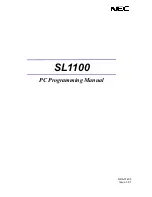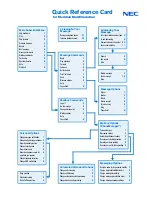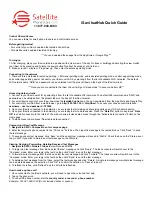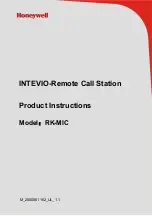
SilverBack V Camera-Mountable Fiber Optic Transmission System
© 2021 MultiDyne, Inc.
Made in the USA
Page
58
APPENDIX B - TROUBLESHOOTING
The following table consists of common symptom, probable cause, and test/corrective actions. The
probable cause column lists the most common faults that can occur with its corresponding symptom.
The test/corrective action column provides a reference to test procedures or specific repairs.
Symptom
Probable Cause
Test/Corrective Action
No power to system
Circuit breaker tripped
Verify that circuit breaker at power source
is on. Reset if necessary.
Operational settings are not in
synchronization between camera
unit and base unit
Camera unit and base unit
are not set up correctly
Reference operating procedures
No video
Dirty cable connection
Remove cable and clean both ends, as
described below
Defective video card
Contact MultiDyne
No audio, sync, or data functions
Dirty cable connection
Remove cable and clean both ends, as
described below
Defective circuit card
Contact MultiDyne
Cable Cleaning Procedure
CAUTION!
NEVER use isopropyl alcohol on any fiber connection. If not thoroughly cleaned and dry,
isopropyl alcohol can leave residual material on the fiber core, which can interrupt
signal flow.
Use only MultiDyne-recommended cleaning products designed for fiber optic cable
connections. MultiDyne recommends Sticklers Fiber Optic Connector Cleaner and
Benchtop Clean Wipes. For in-depth cleaning, MultiDyne recommends Bulkhead Ferrule
Cleaner tool.
Do not scrub the fiber against the wipe. This can cause scratches to the fiber connection.
In addition, do not reuse wipes as residual dirt can be transmitted to other cable
connections.
Use a fiberscope to inspect the LC connectors for dirt or damage.
•
If cable connection is
damaged
, check the connection at both the camera unit and the base unit
•
If cable connection is
dirty
:
o
Fold a lint-free Sticklers Benchtop Clean Wipe into a square.
o
Moisten one section of the wipe with a small amount of Sticklers Connector Cleaner.
o
Lightly wipe the connector end.
o
Dry using the other end of the wipe.
o
Repeat this procedure using a fresh wipe for the other cables that need to be cleaned.
Re-inspect the LC connectors using a fiberscope to be sure connection has been cleaned.
For more in-depth cleaning, use the Bulkhead Ferrule Cleaner device.







































